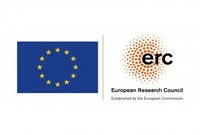Jérémy Dodeigne
Presentation
 Jeremy Dodeigne is an associate professor in Belgian and Comparative Politics at the Department of Political, Social and Communication Sciences at the University of Namur, Belgium. He is currently the President of the Transitions Research Institute. Before that, he was a visiting research fellow at the University of Oxford (UK), University of Edinburg (UK), Universitat Pompeu Fabra (ES) and Universitat Autònoma de Barcelona (ES).
Jeremy Dodeigne is an associate professor in Belgian and Comparative Politics at the Department of Political, Social and Communication Sciences at the University of Namur, Belgium. He is currently the President of the Transitions Research Institute. Before that, he was a visiting research fellow at the University of Oxford (UK), University of Edinburg (UK), Universitat Pompeu Fabra (ES) and Universitat Autònoma de Barcelona (ES).
His research focuses broadly on the access of political elites to power and how they behave once in office, from an historical perspective. In particular, his comparative work has examined how processes of state restructuration—i.e. regionalisation and Europeanisation observed over the last 50 years—have impacted candidates’ recruitment and their parliamentary behaviour. In 2019, he received a competitive research grant from the Belgian Fund for Scientific Research (F.R.S.-FNRS) for the project “Evolv’EP: MEPs’ Career and Behaviour project” (2020-2024). In 2020, he was awarded a supporting research grant from the Belgian Fund for Scientific Research (F.R.S.-FNRS) for the research project “IntraPartyComp: the study of personalisation in 33 democracies since the 2000s” (2021-2023). More recently, he has extended his research agenda to the study of personalisation of politics and political styles in European democracies since the 1960s.
In his projects, he has used both quantitative analyses (with a recent focus on deep learning techniques for content analysis) and qualitative methods (narrative interviews with political elites).
His work has been published in academic journals such as West European Politics, Party Politics, Electoral Studies, American Behavioral Scientist, Swiss Political Science Review, Government & Opposition, Local Government Studies, Publius: Journal of Federalism, Regional & Federal Studies, and Representation.
Contact : Jérémy Dodeigne
More on Jérémy Dodeigne and the POLSTYLE project on the University of Namur newsroom...
Research | ERC starting grant POLSTYLE
Hardly a week goes by without reports of elected officials—often depicted as ‘populists’—having used vitriolic language and viciously attacked their opponents. In a context of ‘restyling of politics’ the style of political actors is presented as increasingly emotional and confrontational. Some scholars have argued that these styles directly challenge the democratic functioning of our modern societies. Yet in the absence of longitudinal studies such claims remain trivial intuitions and anecdotes that are as old as politics. Do the styles of modern politicians constitute new trends or reflect old habits? What are the factors constraining or favouring certain styles?
In the face of a form of nostalgia for good old times I critically challenge the idea that emotional and confrontational styles are peculiar threats in contemporary democracies. I expect to find that there has been no structural increase in the intensity of emotions and conflicts in politics over time. The feeling that something has changed in politicians’ styles relies on definitions of what style encompasses: I argue that styles increasingly focus on individuals and their personal traits and life. This change has occurred at the expense of political issues and policy orientation. While ‘politics is all about conflicts’ the real democratic threats concern ‘personal conflicts without politics’.
The POLSTYLE project makes radical empirical methodological and theoretical breakthroughs by analysing the evolution of political styles in four European democracies since the 1960s. The project builds unique datasets based on political actors’ performances in four arenas: TV printed press parliaments and Twitter. A large-N analysis is conducted using cutting-edge techniques that allow for the analysis of both verbal and nonverbal dimensions of styles. Finally the theory-building approach explains how and why styles have unfolded differently based on institutional political and media factors.
 This project was funded by the European Research Council (ERC) as part of the European Union's Horizon Europe research and innovation programme (grant agreement no. 101078226).
This project was funded by the European Research Council (ERC) as part of the European Union's Horizon Europe research and innovation programme (grant agreement no. 101078226).
The POLSTYLE porject on the TRANSITIONS institute website...
His mentor - Gideon Rahat - The hebrew University of Jerusalem
 Porf. Gideon Rahat is a Professor in the Department of Political Science at the Hebrew University of Jerusalem. His research fields are comparative politics and Israeli politics. His interests include political parties, electoral reform, the personalization of politics and candidate selection methods. He is also a Senior Fellow at the Israel Democracy Institute.
Porf. Gideon Rahat is a Professor in the Department of Political Science at the Hebrew University of Jerusalem. His research fields are comparative politics and Israeli politics. His interests include political parties, electoral reform, the personalization of politics and candidate selection methods. He is also a Senior Fellow at the Israel Democracy Institute.
More info : https://scholars.huji.ac.il/gideonrahat/home














